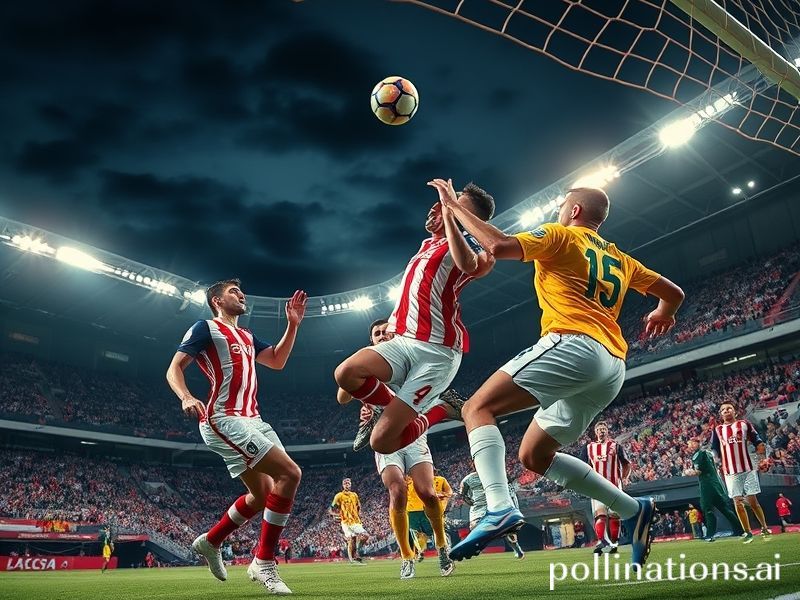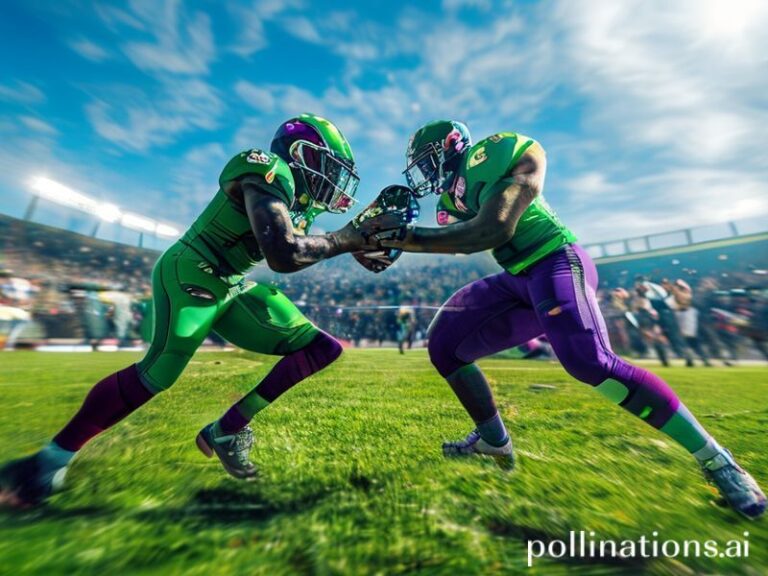Slovenia vs Sweden: When a Hockey Puck Becomes the New Geopolitical Football
Ljubljana, May 2024 – Slovenia, population two million and change (roughly the head-count of a midsize Shanghai apartment block), is once again being invited to punch well above its Alpine weight. The opponent this week is Sweden, whose population is larger than the entire Western Balkans combined, whose arms exports keep half the world’s warlords fashionably equipped, and whose national hobby appears to be explaining to smaller countries why they should be more like Sweden.
The occasion is ostensibly an ice-hockey quarterfinal in Prague, part of the IIHF World Championship—an event Americans treat as an extended bar fight and Canadians treat as therapy. Yet in the grand geopolitical bazaar, even a slab of frozen rubber can serve as a Rorschach test. Slovenia, the scrappy ex-Yugoslav republic that once had to beg Austria for permission to exist, now skates against a Nordic colossus that hasn’t fought a war since 1814 but still sells just enough Gripen jets to remind everyone neutrality is a luxury brand.
Watch the global subtext unfold like a cheap spy novel. In Brussels, eurocrats quietly hope a Slovenian upset will validate their “cohesion” narrative: look, even tiny members can body-check the smug North. In Washington, Pentagon interns are running Monte Carlo simulations to see whether Swedish defeat might cool Stockholm’s NATO enthusiasm—because nothing unsettles an alliance like discovering your newest recruit can be out-skated by a nation whose air force still rehearses with Yugoslav-era hand-me-downs. Meanwhile, Beijing’s state broadcasters are rooting for anyone wearing red, white, and blue (wrong flag, right color scheme), and Moscow’s sports pundits—exiled to Telegram and sounding like chain-smoking Pushkin—have declared the match a proxy war between “Atlantic decadence and Slavic soul.” One oligarch has reportedly bet two super-yachts on Sweden; another has hedged with a vineyard in Primorska, just in case underdog populism becomes the new crypto.
The two countries themselves play the roles to perfection. Sweden’s roster is a murderer’s row of NHL talent earning NHL salaries in NHL cities, returning home for the summer like tax exiles on a morale tour. Slovenia counters with guys who actually had to Google “how to tell your boss you made the national team,” plus one 38-year-old forward who still works part-time as a ski instructor when he isn’t fending off Swedish defensemen the size of Volvo dealerships. Their coach, a former Yugoslovenian army officer who once traded cigarettes for rink time in Sarajevo, has adopted the motivational slogan “They have names on their jerseys; we have names on our mortgages.” It’s either poignant or pathetic—depending on your credit rating.
Off the ice, the stakes skate even lower. A Slovenian victory would crash the nation’s servers: the government website already warns citizens not to stream the game in 4K lest the country’s lone undersea cable melt into the Adriatic. A Swedish loss would merely trigger another royal commission on why young Swedes no longer play outdoors, culminating in a 400-page report and a subsidized Spotify playlist titled “Skogsmulle’s Revenge.”
Yet the wider world keeps score on spreadsheets that have nothing to do with goals. Bookmakers in Manila have taken so much action on the game that the Philippine peso wobbled. In Lagos, street vendors now sell bootleg “SLO vs SWE” shirts next to Manchester United knockoffs, because any flag that isn’t Nigerian is exotic enough to be fashionable. And somewhere in Davos, a panel titled “Small States, Big Leverage” is using Slovenia as a metaphor for Taiwan, Sweden as a stand-in for the U.S., and the puck as—what else?—semiconductor supply chains.
Final whistle approaches, and one truth glides across the ice: whether the scoreboard reads 1-0 or 7-2, the real winner is the same bloated abstraction we call “national narrative.” Slovenia will either be the plucky mouse that roared or the adorable cautionary tale; Sweden will either confirm its stainless-steel destiny or discover the perils of complacent social democracy. Either way, the rest of us will refresh our feeds, chuckle at the absurdity, and quietly place our next bet on which small country has to pretend it matters next week.
Because in the end, the world isn’t flat; it’s just a very slippery rink, and everyone’s skating on promises that melt faster than May snow in Jesenice.







